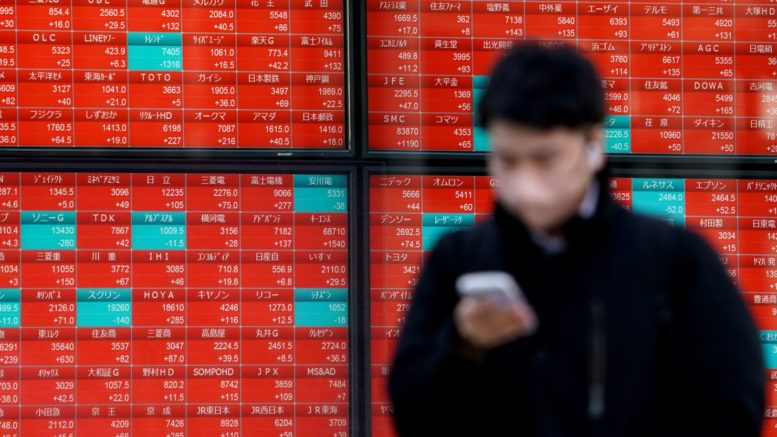Stocks in Japan surged to a historic high on Thursday, surpassing levels not seen in 34 years, a period marked by Japan’s economic zenith followed by prolonged stagnation. The Nikkei 225, Japan’s benchmark stock index, rose by 2.1 percent to 39,098 points, breaking the previous record of 38,915.87 set on December 29, 1989. While Japanese stocks have been gradually rebounding over the past decade, the pace accelerated notably in the past year, with the Nikkei rising by 17 percent since the beginning of 2024.
This surge was fueled by robust earnings from Nvidia, a major player in AI chip manufacturing, which ignited a global rally in stock prices. Concurrently, the Stoxx Europe 600 index reached a record high, while S&P 500 futures surged by over 1 percent. Several factors have contributed to Japan’s economic turnaround and subsequent stock market surge.
One significant factor is the weakening yen, which has boosted the competitiveness of Japanese exporters earning profits overseas. Additionally, reforms in the corporate sector have enhanced shareholder rights, enabling them to advocate for changes favoring their investments. Unlike other regions, rising inflation in Japan is perceived positively as it signals a departure from decades of deflation and sluggish growth, encouraging spending by individuals and businesses alike.
Moreover, Japan’s stock market has benefited from China’s economic slowdown, prompting foreign investors to redirect funds into Japanese equities. In January alone, foreign investors injected a net $14 billion into the Japanese market, a substantial reversal from the $3 billion withdrawn in December. Strong corporate earnings have further bolstered investor confidence, with large Japanese firms expected to report over a 40 percent increase in quarterly profits, according to Goldman Sachs.
Despite skepticism regarding Japan’s ability to sustain growth, analysts perceive the current rally as less speculative compared to previous surges. While buying Japanese stocks ranks as the third most popular trade this year according to a Bank of America survey, it remains overshadowed by bets against China’s market and investments in major tech giants.
Looking ahead, the Bank of Japan faces the challenge of navigating uncertain economic terrain. While Japan’s economy unexpectedly contracted in the fourth quarter, contrasting with robust growth in the United States, the central bank continues to maintain low interest rates to stimulate inflation. However, amidst considerations of raising interest rates to support the currency without stifling inflation, the recent earthquake on the Noto Peninsula and the possibility of a global economic slowdown add further complexity to the bank’s decisions. Economists anticipate a gradual move out of negative interest rates but expect rates to remain at zero for the foreseeable future.

